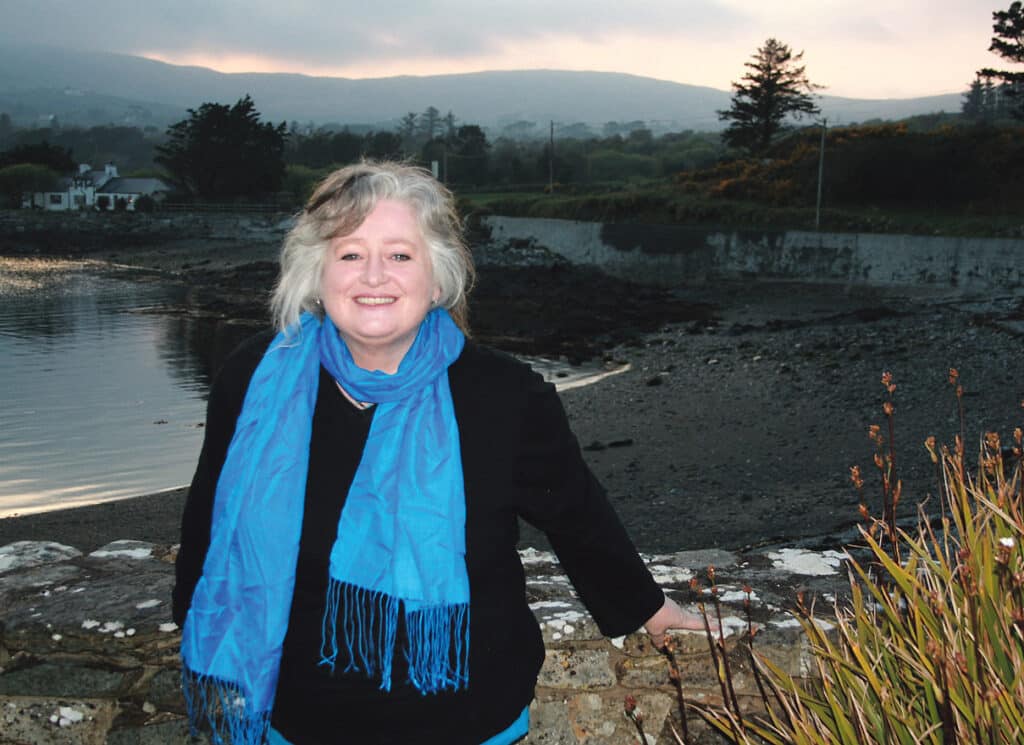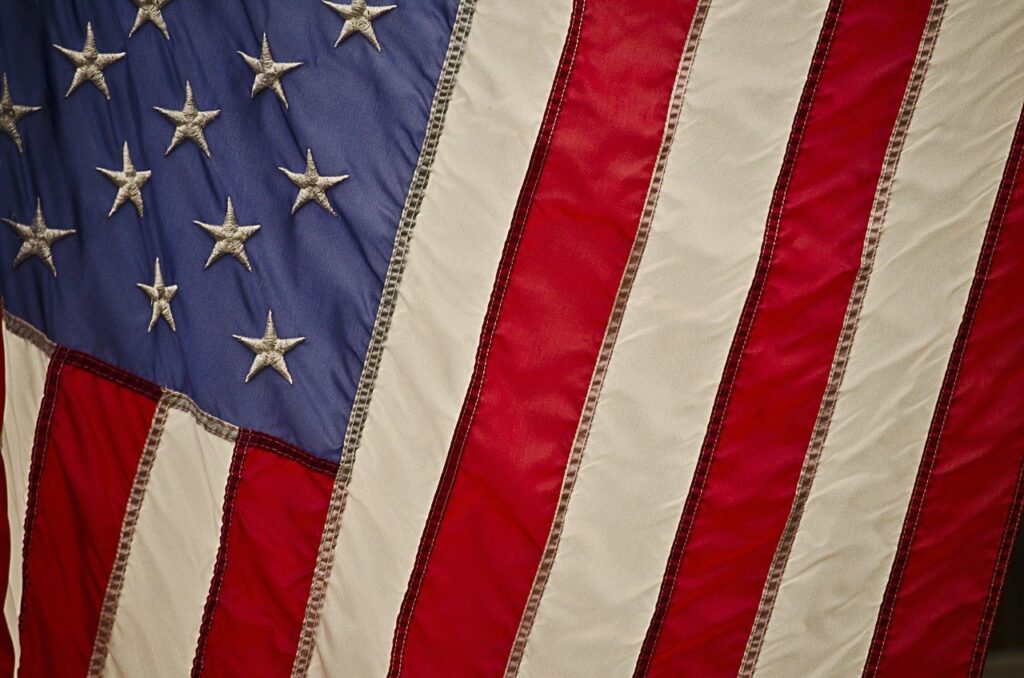
For Kate Arbon, Christmas has become a very sacred time to spend in solitude. The West Cork astrologer loves the freedom of no pressure or expectation and finds a special peace in being alone and inwardly focused at such a busy time of year.
“I don’t really ‘do’ Christmas in the traditional way any more,” says Kate. Instead of the big tree, presents, Santa and 20 people for dinner, which she has done in the past, she likes to observe traditions such as bringing some evergreen branches into the house for the Solstice and lighting candles every sunset until Epiphany, Little Christmas. “I’ll usually make a wreath for the door and have a little fir tree with some lights in a corner. I love that feeling of lighting up the darkest days. It’s about ‘holding the light’,” she explains.
Life and work entwines for the astrologer, who explains that the insight and understanding provided by her work has really helped her during tough times. “And there’s been plenty of those times,” she admits.
“I’ve never really used astrology to set out any life plan, and I’ve never let it influence my intuitive decisions. But I do use Astrology to understand why things are happening the way they do and it makes sense of many events and aspects of my life,” she explains.
In recent years, Kate has seen a huge increase in interest in astrology. “People are recognising that it can offer another perspective,” she says. “I think this is a very critical time in our modern history and people want to make sense of their experiences and to understand the larger patterns that are affecting them personally.”
However for this astrologer – who, when she’s not studying or researching something related to astrology is happiest outdoors in all weathers at her home on the Sheep’s Head Peninsula – overcoming the misunderstandings about astrology is still a challenge. “There’s a lot of stuff online that gives people the wrong impression so it’s easy to think of astrology as a fortune telling service,” explains Kate. They will see it alongside tarot readings and psychic readings. It’s very different, but reaching people with that information so they can appreciate its value is a challenge.
She’d encourage any sceptic to come for a reading. “To dismiss something that you have never actually taken time to try for yourself doesn’t impress me,” says Kate. “The best way to see the value of astrology is to experience it in a personal way with a well established and genuine astrologer.”
Kate was born when the Sun was in Cancer so, as a water sign, she says that she is very aware of subtle undercurrents, emotions, feelings and atmosphere, with a sensitivity to people and what they need.
During each reading she sees the person from a perspective that they themselves may not have seen. “When I can give them something to go away with that will add to the quality of their life, a lasting positive insight, I feel like my work is meaningful and worthwhile,” she says passionately.
So what is astrology and how does it work? Kate explains how essentially astrology is the study of the movement of the planets, and other astronomical bodies, and the interpretation of those movements as they reflect life on earth. “It’s been said ‘as above so below’,” she says simply. “Astrologers look at events, situations, individual personality and life patterns and we can see there is a fairly predictable comparison to the ‘heavenly’ patterns and events. It’s really just knowledge based on the results of statistical research, over millennia! How that actually works, well how does anything in our experience ‘work’? That’s like asking me to explain ‘life, the universe and everything’. That could take more than one book!” she laughs.
The roots of modern Western Astrology can be traced back at least 4000 years to Sumaria, Babylonia and Egypt, but we know it’s older than that.
“There have been mammoth tusks found that have the lunar phases carved into them so we can assume that studying the movement of the ‘heavens’ is as old as the human race!” explains Kate.
Astrology, medicine and astronomy were all studied together as inseparable subjects up until the late 1600s in Western Europe. “It was taught in the universities and widely used by monarchs, Popes and other leaders. Political and religious trends during the 17th century forced it to go underground and it fell out of popular use. In the late 1800s there was a re-emergence and modern astrology evolved, incorporating a psychological approach and becoming popular in the mainstream once more during the mid 1900s.”
In recent years, since the early 2000s, many ancient Arabic, Greek and Latin texts have been fully translated into English for the first time. A wealth of lost knowledge and techniques are finally being re-introduced to modern astrologers.
Kate’s childhood involved spending a lot of time on her own so she learned to love reading, which eventually led to her interest in and passion for astrology.
Her training started when she found a book that showed her how to calculate a birth chart. ‘I was motivated to start studying further so I could interpret those charts,” she explains. “It was all hand drawn and calculated using complex maths back then.”
Kate relied on books and self-directed study, as there just wasn’t the options for courses that there are now. The more she learned, the more she wanted to know. “So I just kept going,” she says, “reading every book by every author that I could find.
Over time this passion evolved into a professional ‘job’.
“With the Internet it was so much easier to find sources of quality information and I’ve had the chance to connect with so many more highly skilled astrologers in recent years. I didn’t set out to be a professional astrologer but, as I got more knowledgeable, people wanted me to look at their chart for them.”
We are living through one of the most challenging moments in world history, which Kate says is “also a critical time; it’s a time of change and it’s happening at high speed.
“Changes are to be expected with the current planet themes but there are choices to be made too.”
Perhaps that is where Kate’s work gives her an advantage in life. “It probably helps me stay balanced,” she admits. “I see it all as part of a bigger pattern, a drama being played out. I get to see the bigger picture so I can keep some detachment.”
So what does Kate see playing out on the world stage?
“There’s a definite shift in energy dynamics as we turn the corner into 2021. The tough and frustrating transits that have been the theme of 2020 are reaching conclusion. Now we’re looking at fast-paced changes and a serious overhaul of our society and economy over the next two years. The panic and fear that forced all the recent drastic measures have revealed a high level of corruption and self-interest amongst the world’s political leaders. We’re getting our eyes opened to who and what doesn’t work well for the ordinary person. There’s going to be a lot of new thinking. Innovations and creative solutions will emerge. It is going to be a bit of a rollercoaster ride. More controls will be enforced and everything about our daily life becomes subject to the governments dictate.”
But the good news is that “2020 Winter Solstice brings the end to the age of materialism, and like in the story of King Cnut who recognised that, for all the regal and sovereign power he held, he couldn’t control the tide. We’ll be reassured that there exists a greater force than any earthly power can summon. This will become apparent as those who try to become our ‘overlords’ come unstuck!
“The coming months will remind us that natural laws and the inherent force that creates life itself always has the final say. We can shake off the disbelief at where we find ourselves at the end of 2020. It’s a bit like we fell asleep at the wheel! Once we get our bearings again, we’ll remember that the ‘life force’ is actually on our side and we can gradually find the right road to a new harmony with nature and life itself.”
And so there is hope…



